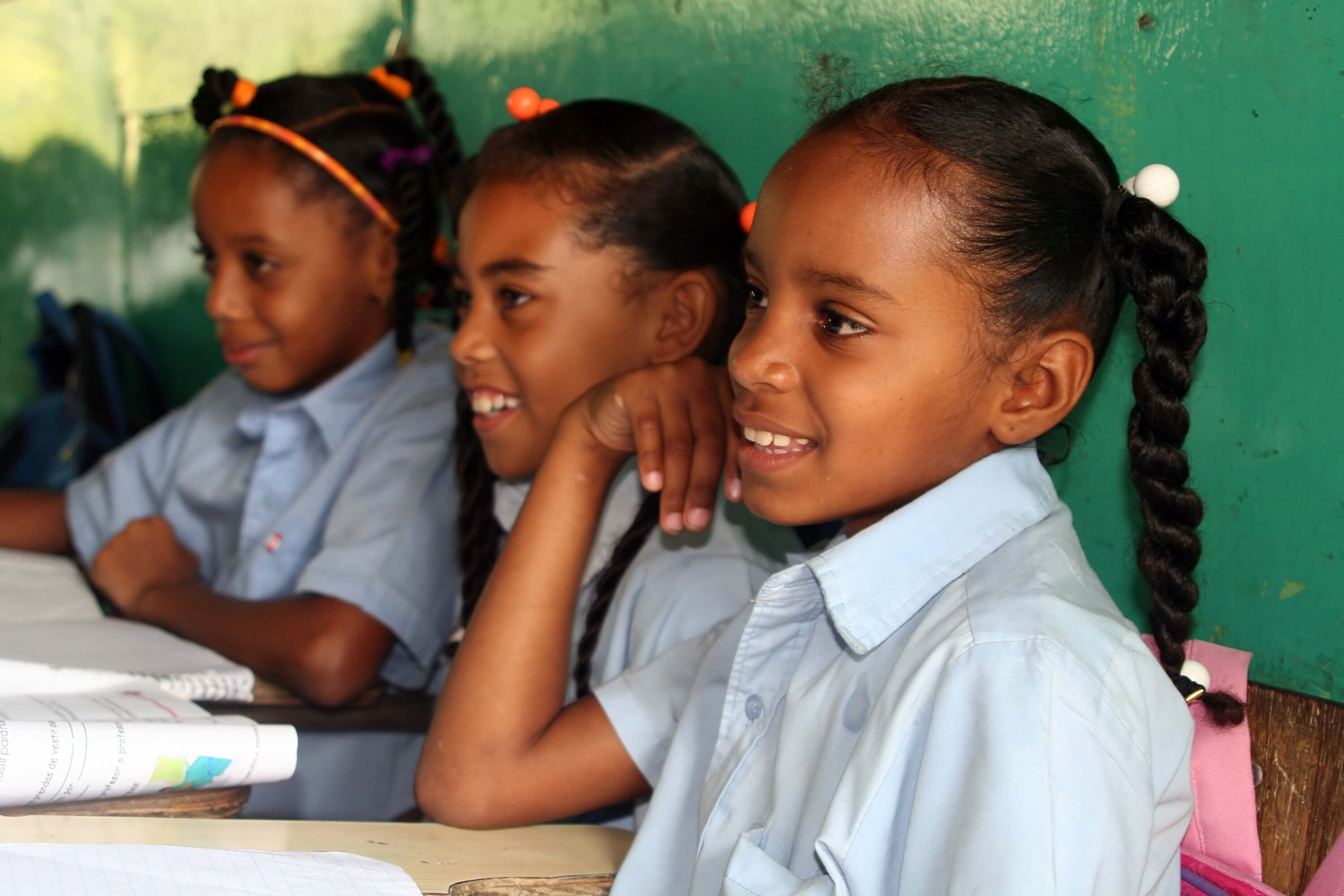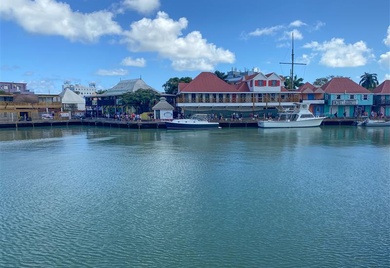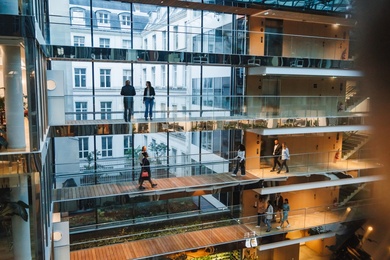Innovation during COVID-19: If You Want Something New, Stop Doing Something Old
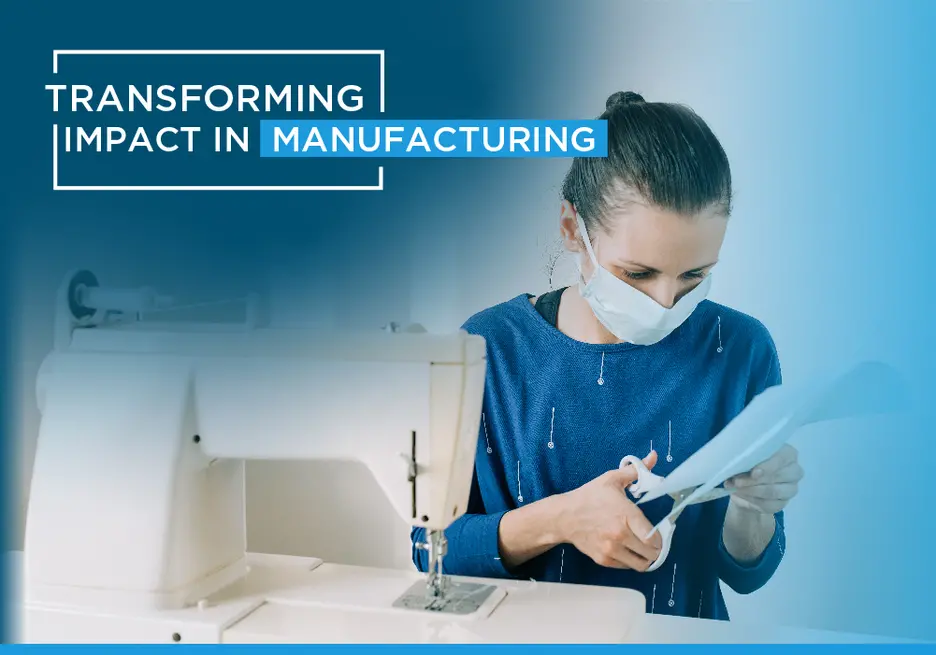
The world is anxiously looking at the scientists working around the clock to make a vaccine or cure for COVID-19. However, this does not mean that innovation in other fields has to stop.
In Latin America and the Caribbean (LAC) – and in many other places – when we talk about innovation, we are mainly talking about creating better processes and technologies that allow for increased productivity and creation of added value. A common misconception is that innovation means reinventing the wheel or the iPhone when, in fact, the most impactful innovations can be very focused and adapted to current conditions.
An example of this are the work habits that many of us had to develop during the pandemic, largely due to working remotely. Our ways of interacting with customers, suppliers, colleagues, shareholders, etc., have evolved rapidly; modes of transportation and habits have changed completely, the purchase of goods and services has moved from the tangible world to a virtual, cloud-based environment.
You may also like:
- ESG: Due Diligence in the Age of Social Distancing
- The COVID-19 Crisis: An Opportunity for the Financial Sector
- How exposed is Latin America to the trade effects of COVID-19?
Current circumstances drive innovation to maintain and subsequently increase prior levels of economic activity. In the words of Peter Drucker, often called the philosopher of business management, “if you want something new, you have to stop doing something old.”
There are many examples of business innovations that deserve study: product delivery systems on sidewalks, windows, parking lots, etc.; real estate companies that (at long last!) have decided to offer virtual tours of their properties to prospective clients; remote classes in gyms, music schools, and soccer clubs; restaurants that encourage home delivery or prepare takeout dishes to cook or finish at home; household-appliance and automotive manufacturers making respirators.
This push for innovation is important for LAC, a region that, according to World Intellectual Property Organization estimates, is not among the most innovative in the world.
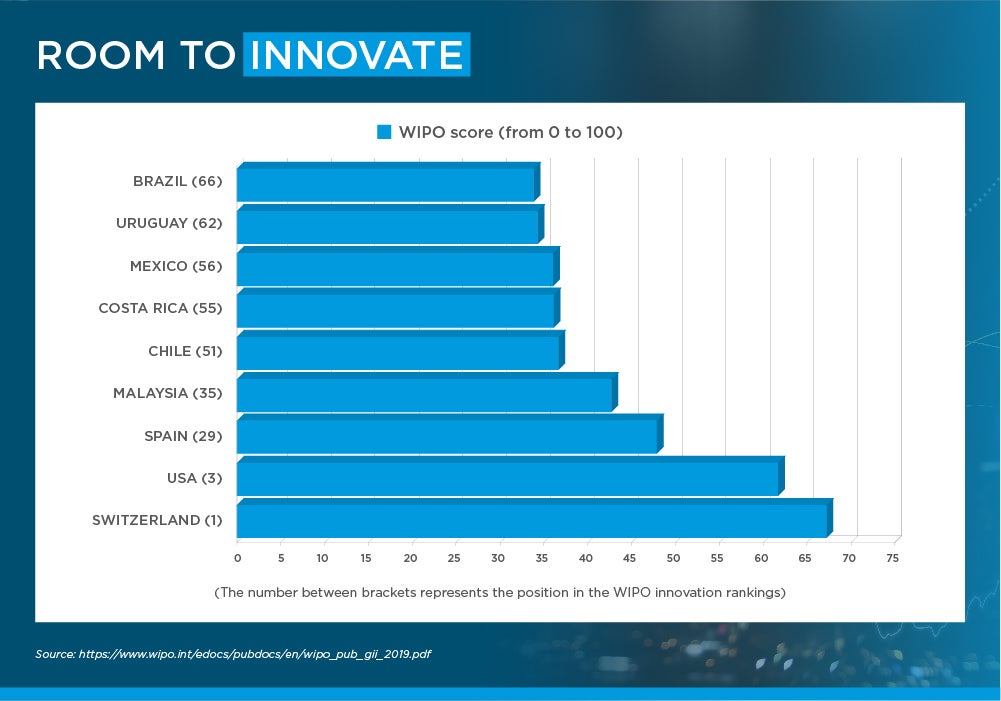
BID Invest's clients are clear examples of innovation. Genomma Lab, one of Mexico's leading pharmaceutical and personal care companies, decided to restructure some of its production lines in the face of the pandemic. Supported by its manufacturing network, it began to produce antiseptic and disinfectant products – mainly alcohol gels like hand sanitizers – that were not part of its portfolio, as their demand began rising exponentially, with a subsequent increase in sales.
Something similar happened with Elcatex Group in Honduras, a textile business conglomerate mainly dedicated to manufacturing knitted fabric, cut pieces and full-package programs. Elcatex is able produce up to 2 million pounds of textiles per week. Early into the health emergency, Elcatex first adjusted its biosecurity protocols to protect its associates and then adapted its production, cutting, and clothing lines to make face masks in under 10 days and medical gowns in less than 45 days.
These items are critical to combating COVID-19. Elcatex's sales efforts have focused on the local market and exports to the USA, where they have been approved by the Food and Drug Administration.
Ultimately, both Genomma Lab and Elcatex turned a threat into a competitive advantage, using innovation to make processes more flexible and to adapt their production methods. These cases should be an inspiration for the manufacturing industry in LAC, a region in which COVID-19 has had devastating effects at the micro and macroeconomic levels.
Brazil and Mexico – the two largest economies in the region – are likely to suffer their worst economic crises in recent history, while the Economic Commission for Latin America and the Caribbean forecasts a drop in regional GDP of around 5.3% in 2020. According to the International Monetary Fund, by 2021 LAC will see a recovery of 3.4%; whether this recovery is sustainable and lasting will depend on how it responds to the crisis.■
LEARN HOW IDB INVEST CAN OFFER YOU SOLUTIONS HERE.
SUBSCRIBE AND RECEIVE RELATED CONTENT |
| [mc4wp_form] |
LIKE WHAT YOU JUST READ?
Subscribe to our mailing list to stay informed on the latest IDB Invest news, blog posts, upcoming events, and to learn more about specific areas of interest.
Subscribe